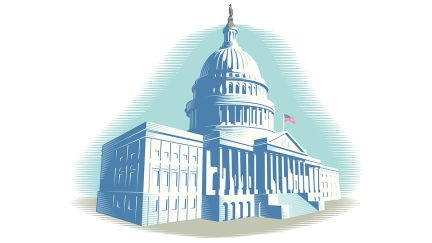Never miss a story — sign up for PLANADVISER newsletters to keep up on the latest retirement plan adviser news.
Retirement Security Legislation In Focus on Capitol Hill
The house it set to vote on the ‘SECURE Act 2.0’ and hold a committee hearing focused on improving Americans’ retirement savings and investing opportunities.

The House of Representatives is set to take up several key retirement security initiatives this week, including a vote on the Securing a Strong Retirement Act of 2022, an ambitious piece of legislation often referred to as the SECURE Act 2.0.
According to a statement released by House Majority Leader Steny Hoyer, D-Maryland, the House will vote Tuesday on the SECURE Act 2.0, building on the success of the Setting Every Community Up for Retirement Enhancement Act of 2019. The legislation includes several bipartisan provisions from bills introduced by other members of the House, such as expanding automatic enrollment in employer provided retirement plans, simplifying rules for small businesses and helping those near retirement save more for longer.
Hoyer says he expects the legislation to help increase Americans’ access to retirement funds and to help more families save for the future.
Also happening Tuesday, the Senate Committee on Health, Education, Labor and Pension will hold a hearing focused on improving Americans’ retirement options and enhancing savings, according to a statement released by HELP Committee Chair Senator Patty Murray, D-Washington.
The hearing will include testimony from retirement industry experts who will call for expanded access to savings opportunities.
Also notable is the recent reintroduction by Representatives Brad Wenstrup, R-Ohio, and Tom Suozzi, D-New York, of the Enhancing Emergency and Retirement Savings Act of 2022. This bill seeks to help more Americans save for retirement by providing greater flexibility to cover unexpected financial emergencies, according to a statement released by Wenstrup.
The bill would allow penalty-free emergency distributions of up to $1,000 from tax-exempt retirement plans for emergency expenses. Plan participants would be limited to one such distribution in a calendar year and couldn’t get another emergency distribution before having paid off their first, thereby safeguarding long-term savings, according to Wenstrup.
The bill is the House companion to the Senate version, introduced by Senators James Lankford, R-Oklahoma, and Michael Bennet, D-Colorado, in May 2021. Neither version of the bill has moved beyond its committee.
You Might Also Like:

403(b) Plans Have Special Considerations When Complying with SECURE 2.0

Answering Questions About SECURE 2.0 Catch-Up Provisions
